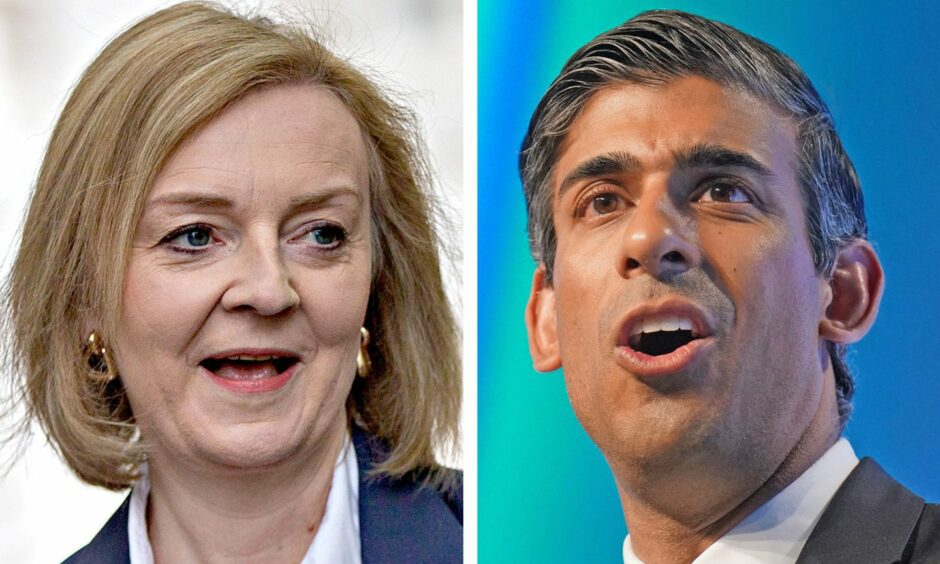
The next Prime Minister has been urged to back the energy sector and shut down windfall tax “speculation” as Liz Truss and Rishi Sunak visit North-east Scotland today.
Their visit across Aberdeen and Aberdeenshire, ahead of a hustings in Perth later, come while questions are raised on the viability of a £29 billion proposal from Labour to freeze the energy price cap and backdate the oil and gas windfall tax to January.
Industry bosses said the proposal has “provoked angst” in the sector, as the next Prime Minister visits the region today, with “billions on uncommitted spending at stake”.
Labour leader Sir Keir Starmer said the windfall tax extension would not impact investment because companies were making excess profits they “did not expect to make”.
Last night an industry insider hit back at those comments, saying: “Yes, we didn’t expect to make the profits, but we also didn’t expect to be paying 65% tax.
“If you’re an investor and you’re looking at the UK, and you’re thinking screw that, frankly. We could go to Norway, where the tax rate is around 76%, which is massive. But you go ahead safe in the knowledge they won’t change the goal posts twice in a month.”
It comes as a solution is being sought rapidly to a surge in household fuel costs, with bills expected to rise to £3,600 in October as the price cap increases.
‘The cost of furlough’
However questions are being raised on how Labour would fund the proposal, which Sir Keir said would provide a freeze on the energy price cap.
The £29bn figure is on the assumption of freezing the cap for only six months – and there’s no guarantee prices will have dropped by then.
The Institute for Fiscal Studies (IFS) said extending the proposal from six months to a year would be “looking at the cost of furlough“.
Director Paul Johnson said it would be a “temporary subsidy” and the average rate of inflation would not change over time.
Sir Keir Starmer said the length of the windfall tax measure would need to be reassessed in April.
That has led industry bosses to question what will happen when the next set of quarterly financial results are out in October, or indeed indeed results following that, if prices remain high.
Some companies have said that the tax puts projects beyond 2023 at risk.
Jenny Stanning, external relations director at trade body Offshore Energies UK (OEUK), said: “While both Conservative party leadership candidates have stated their support for the sector, the ongoing speculation caused by recent calls to extend the tax is hurting places like Aberdeen which have a vibrant offshore energy industry. We are clear that extending the windfall tax would make it even harder to attract investment that is badly needed to meet the UK’s energy needs.
“If we fail to reverse or even manage the declining levels of domestic oil and gas production, this won’t just impact jobs and companies here in North-east Scotland- it will drive up consumer costs as we import more and more of our energy from overseas.”
The trade body said 85% of homes in the UK are heated by gas, much of it from domestic supply.
Ms Stanning added: “From Aberdeen to East Anglia to Southampton and everywhere in between, it’s important that politicians of all parties recognise the critical role this sector is playing and can continue to play in keeping the nation’s lights on, homes warm and industries powered. We urge Liz Truss and Rishi Sunak to make clear their commitment when they visit North East Scotland today.”
